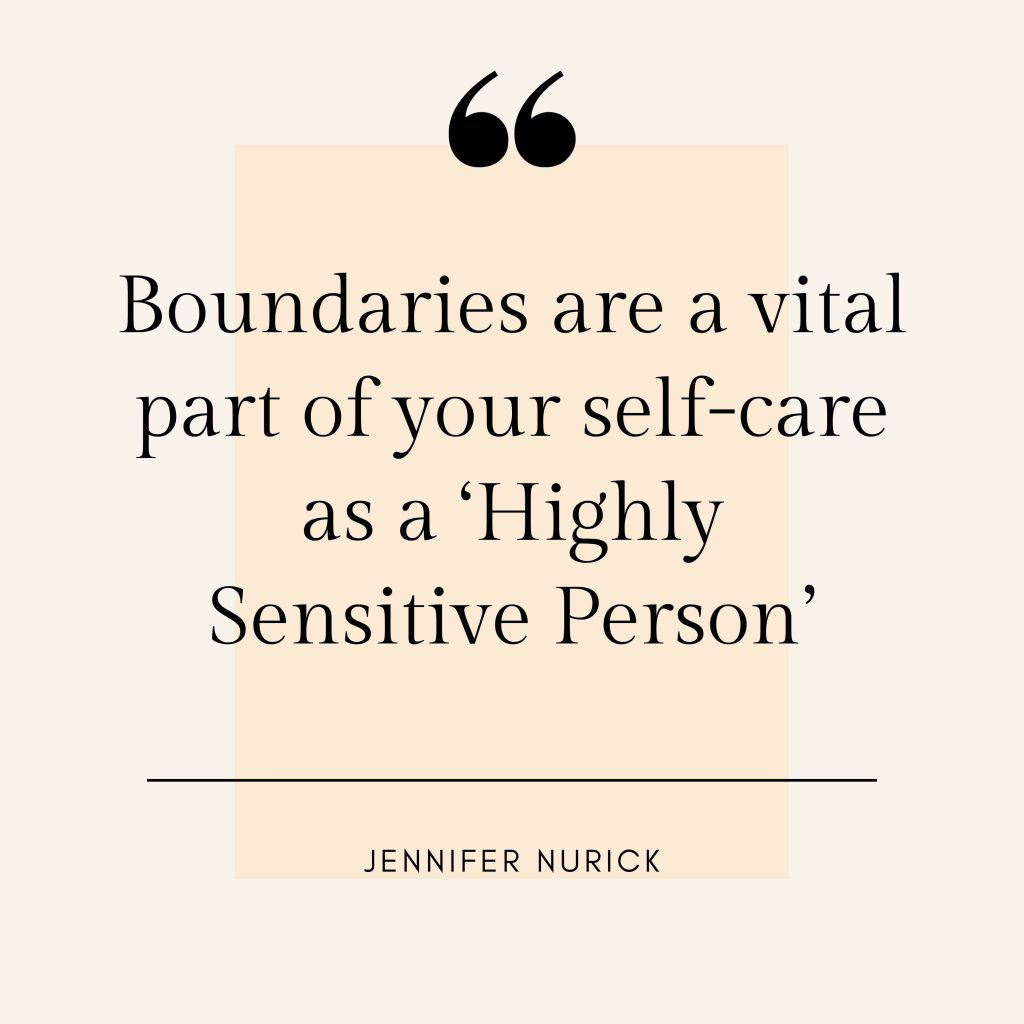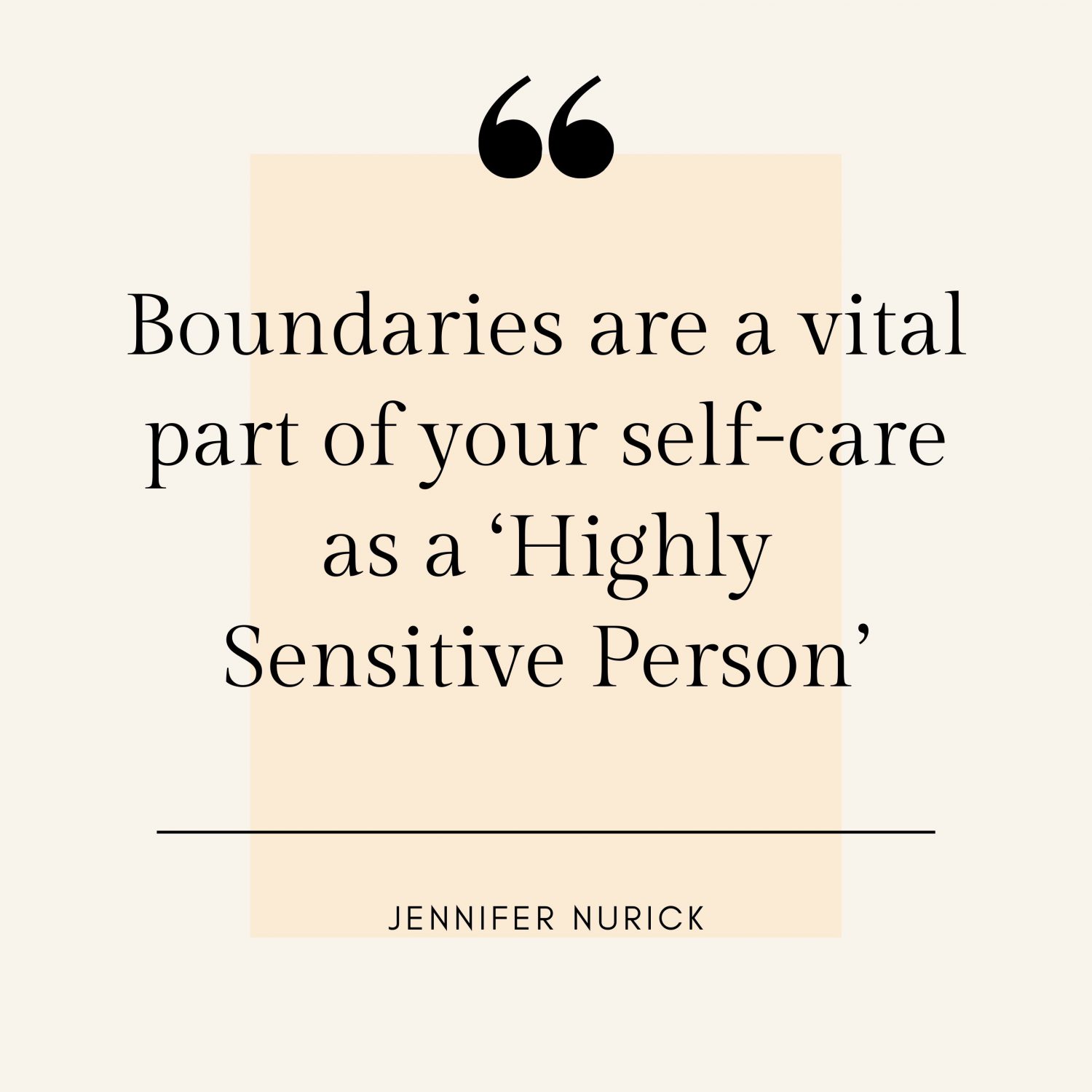Research has shown that highly sensitive people (HSPs) have a heightened sensitivity to how others are feeling, AND a tendency to feel the way the other person is feeling. So, if someone they love is sad, they have a tendency to empathise and feel sad too. Or if they are around happy people, they will have a stronger tendency to ‘catch’ the happiness.
Having a strong capacity for empathy is one of the reasons many HSP end up in service roles. They enjoy careers where they can use their natural empathy to its fullest, such as in teaching, nursing, as a therapist, or a veterinary nurse.
Being an HSP is neither good or bad, but it might mean you need to have different boundaries with your time and your energy to other people. Being an empath can be exhausting. It is prudent to know when and with whom and for how long you feel energised and when you feel depleted.
Boundaries are a vital part of your self-care as a highly sensitive person.
Having boundaries around what you do often involves having to say ‘no’ to some things. This can sound like:
- I have been feeling pretty tired lately, I feel I need to rest tonight
- I can come for 2 hours, then I will need to leave
- I don’t answer my phone after 7pm
It can be difficult for HSPs to say ‘no’ because they face the disappointment of the other person. Boundaries are usually a constant work in progress for highly sensitive people.
Let me know if this is you in the comments.

Reference: Aron, E. N. (2016). The Highly Sensitive Person. NY, New York; Random House.
